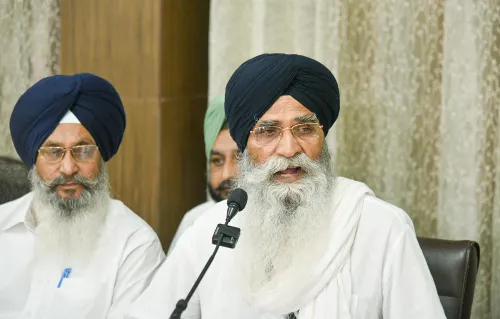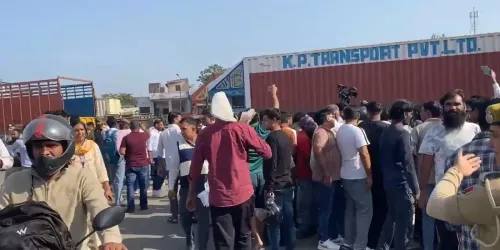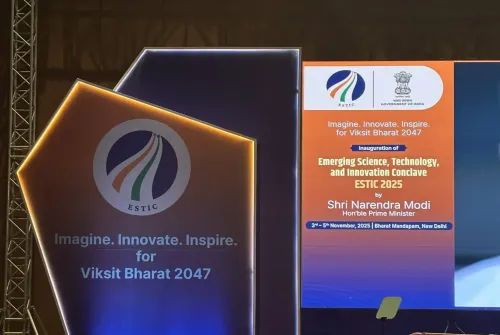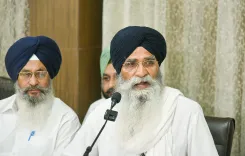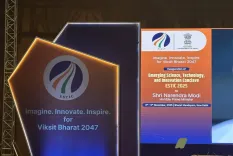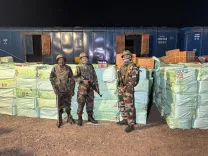How are senior leaders responding to the Centre’s crackdown on Maoists?
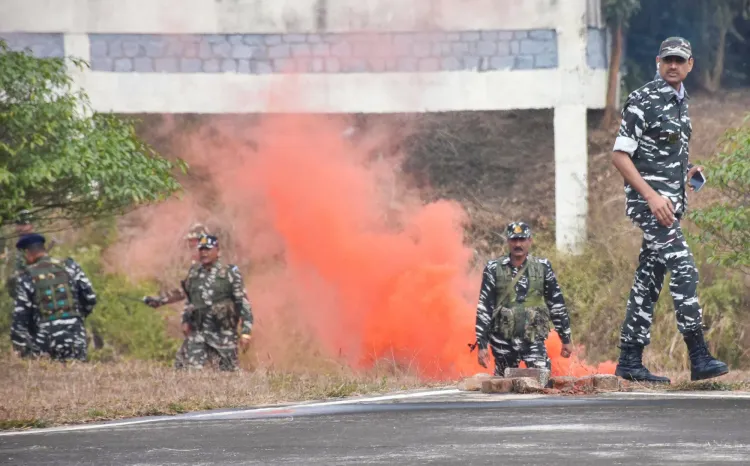
Synopsis
Key Takeaways
- Government's strong stance against Maoism is recognized by various political leaders.
- The death of Basava Raju signifies a potential setback for Maoist movements.
- Political responses vary, indicating deep divisions in opinions on handling insurgency.
- Development is hampered by Maoist activities, prompting the government's intervention.
- A timeline for the eradication of Maoism has been established by the government.
New Delhi, May 22 (NationPress) The government's decisive operations against Maoist factions have elicited diverse responses from political figures, many of whom recognize the administration's strong stance in combatting insurgency.
The recent death of the notorious 70-year-old Maoist leader Basava Raju, who had a bounty of Rs 1 crore on his head, alongside the elimination of 27 others in Chhattisgarh, has reignited debates regarding the trajectory of Maoism in India.
Raju was known for his involvement in multiple significant attacks against security personnel, and his demise could represent a substantial setback for the Maoist movement.
In an interview with IANS, Delhi's Member of Parliament (MP) Manoj Tiwari underscored the government's dedication to eradicating Maoism, citing Home Minister Amit Shah's repeated affirmations in Parliament concerning a robust strategy.
Tiwari remarked that Maoists have historically hindered development in numerous areas, stifling progress and prosperity.
He commended the Home Minister and his team for their unwavering commitment, asserting that their efforts in the fight against Maoism will be honored for years to come.
Congress media spokesperson Rakesh Sinha commented on Raju's death during an encounter, characterizing it as a necessary action taken by the authorities and the Border Security Force.
He highlighted the Maoists' notorious history of attacking and killing innocent civilians, arguing that meaningful dialogue can only occur if they choose to surrender.
Sinha pointed to Jharkhand as an instance where negotiations proved successful but insisted that Maoists should not be viewed with respect until they cease their violent actions.
Shiv Sena representative Sanjay Nirupam reiterated the government's position, affirming that the NDA is resolute in its goal to completely eradicate Maoism by the following year.
He denounced Maoist leaders for their rebellion against India's constitutional order, the killing of soldiers, and the disruption of civilian life.
Nirupam maintained that advocates of violent ideologies have no place in society, emphasizing that the government's actions are justified and deserving of support.
Former Union Minister Mukhtar Abbas Naqvi echoed the government's pledge to eliminate Maoism, stressing that a timeline has been established for its eradication.
He pointed out that Maoists have long obstructed development in affected areas, hindering economic growth and stability. Naqvi praised Home Minister Amit Shah's leadership, asserting that the ministry's efforts in combating Maoism will be widely recognized for years.
The government's assertive position against Maoism has sparked both support and opposition, mirroring the profound ideological divisions regarding the topic.
While some advocate for dialogue and reintegration, others support a hardline strategy to eradicate insurgency. As operations persist, the discourse surrounding the optimal approach to address Maoism remains a central theme in India's political landscape. The anti-Maoist initiatives are actively ongoing in Chhattisgarh.

